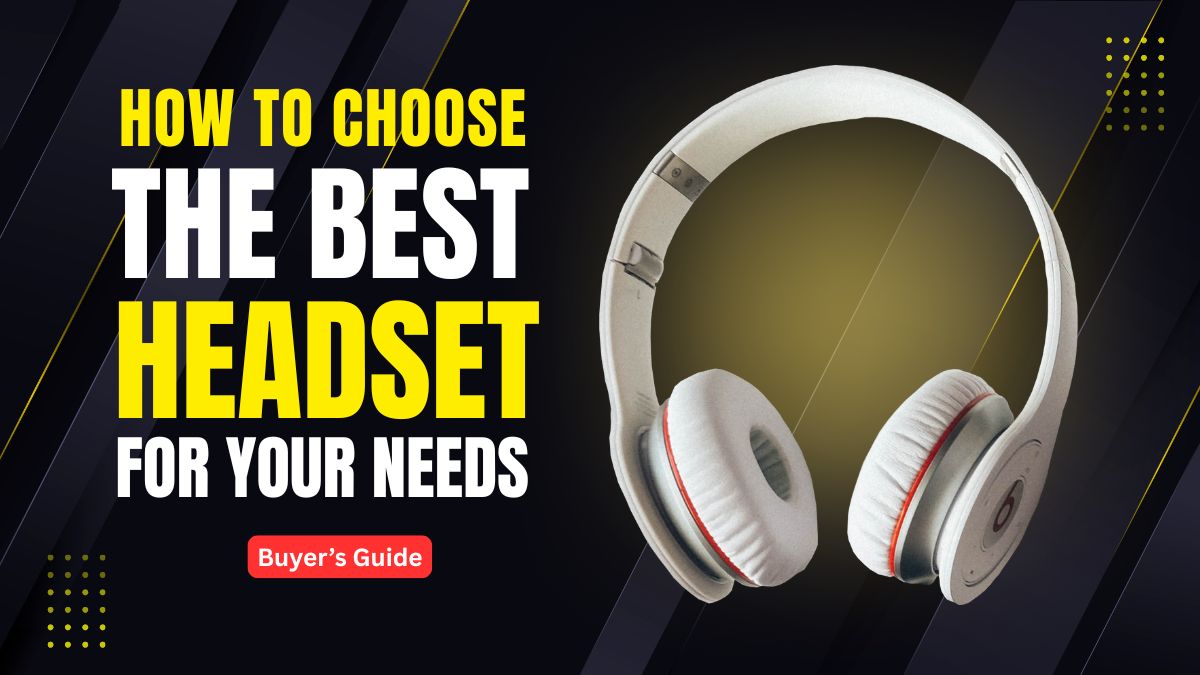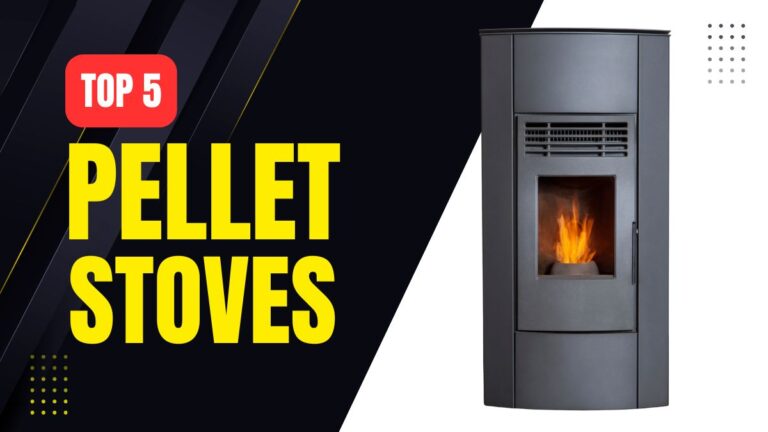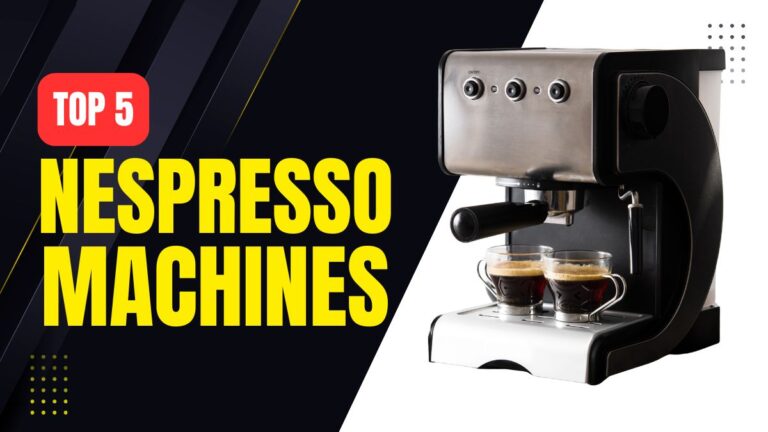Table of Contents
Disclosure: As an Amazon Associate, I earn from qualifying purchases. This means that if you click on a link and make a purchase, I may receive a small commission at no additional cost to you.
Why Choosing the Right Headset Matters
In today’s connected world, a good headset is no longer a luxury, it’s a necessity. Whether you’re working from home, immersing yourself in a gaming session, enjoying your favorite music, or traveling on a noisy plane, the right headset can completely transform your experience.
On the flip side, the wrong choice can lead to discomfort, poor sound quality, frequent dropouts, and wasted money. Many people buy a headset based only on brand or looks, but fail to consider whether it truly fits their personal needs.
In this guide, you’ll learn exactly how to choose the best one for your needs by understanding your use case, comparing essential features, setting a budget, and reviewing some of the top headset recommendations.
Understand Your Use Case First
Before you even look at brand names or fancy features, you need to define what you’ll primarily use your headset for. Different activities require different specs.
1. Work / Remote Meetings
If you spend hours on Zoom, Microsoft Teams, or Google Meet, you’ll want:
- A clear, noise-cancelling microphone so your voice is crisp.
- Comfortable ear cups for all-day wear.
- Stable Bluetooth or wired connectivity to avoid interruptions.
Best Matches:
- Jabra Evolve2 65 – Designed for professional calls.
- Logitech Zone Wireless – Perfect for home offices.
2. Gaming
Gamers need a headset that keeps up with fast-paced action.
- Low latency for real-time sound.
- Surround sound (7.1 or spatial audio) for positional awareness.
- A boom microphone for team communication.
Best Matches:
- SteelSeries Arctis Nova Pro – Premium performance.
- Razer BlackShark V2 – Competitive gamer’s choice.
3. Music and Entertainment
For audiophiles or movie lovers:
- Wide frequency range and quality audio drivers.
- Rich bass and crisp treble.
- Noise isolation or active noise cancellation (ANC) for immersive sound.
Best Matches:
- Sony WH-1000XM5 – Industry-leading ANC.
- Bose QuietComfort Ultra – Balanced sound profile.
4. Fitness and Travel
For workouts or frequent flights:
- Lightweight, sweat-resistant, and portable design.
- Strong battery life.
- ANC to block engine noise.
Best Matches:
- Anker Soundcore Life Q30 – Affordable ANC.
- Apple AirPods Pro 2 – Compact and powerful.
Pro Tip: If you do multiple activities, prioritize the one you’ll use your headset for the most, and ensure it also works reasonably well for the others.
Key Specs to Consider Before Buying
Once you know your main purpose, it’s time to compare features.
1. Sound Quality
- Drivers: Larger drivers (40mm-50mm) often produce richer audio.
- Frequency Range: Look for 20Hz-20kHz or wider.
- Surround Sound: Gamers should look for 7.1 or 3D spatial audio.
2. Microphone Quality
- Noise Cancellation: Cuts out background sounds.
- Boom vs. Inline: Boom mics are better for gaming; inline mics suit casual use.
- Mute Function: Handy for calls.
3. Connectivity
- Wired: Reliable, no battery needed.
- Wireless: Bluetooth (look for aptX, AAC, LDAC for better quality).
- Dongles: USB dongles provide lower latency for gaming.
4. Comfort and Build
- Ear Cups: Memory foam is best for long wear.
- Weight: Under 300g for extended comfort.
- Adjustable Headbands: Ensures a snug fit.
5. Battery Life (Wireless Headsets)
- Average: 20-40 hours.
- Fast Charging: 10 minutes for several hours of playback.
6. Noise Cancellation
- Passive: Ear cup design blocks noise.
- Active (ANC): Electronics cancel noise in real time.
7. Compatibility
Make sure your headset works with:
- PC / Mac
- Gaming consoles (PS5, Xbox)
- Mobile devices
Budget and Value for Money
You don’t need to spend a fortune for quality, but you do need realistic expectations.
| Price Range | What to Expect | Examples |
|---|---|---|
| Under $50 | Basic wired or wireless; decent sound, minimal ANC | Anker Soundcore Q20, HyperX Cloud Stinger |
| $50–$150 | Good build, ANC, better mic quality, wireless options | Logitech G Pro X, Sony WH-CH720N |
| $150+ | Premium sound, high-end ANC, multi-device pairing | Sony WH-1000XM5, SteelSeries Arctis Nova Pro |
Tip: Don’t overpay for features you won’t use. A $300 gaming headset is overkill for casual Zoom calls.
Final Tips and Top Recommendations
A. Recap Checklist for Decision-Making
✅ Define your primary use
✅ Choose wired or wireless
✅ Set a budget
✅ Check comfort and fit
✅ Review noise cancellation needs
✅ Ensure compatibility
B. Top Headset Picks (2025)
| Use Case | Headset | Why It’s Great |
|---|---|---|
| Best for Work | Jabra Evolve2 65 | Clear mic, long battery life |
| Best for Gaming | SteelSeries Arctis Nova Pro | Low latency, surround sound |
| Best Budget Pick | Anker Soundcore Life Q30 | Great ANC under $100 |
| Best for Travel | Sony WH-1000XM5 | Premium comfort & ANC |
C. Where to Buy
- Online: Amazon, Best Buy, official brand sites.
- Retail: Try in-store to test comfort.
- Deals: Look for seasonal sales like Black Friday, Prime Day.
Conclusion: Make a Smart, Personalized Choice
The best headset is the one that fits your lifestyle, not just the most expensive model on the shelf.
By defining your primary use, comparing specs, setting a realistic budget, and reviewing top picks, you’ll find a headset that delivers comfort, quality, and long-term value.
If possible, test a few in-store before buying, and remember, a good headset is an investment in both sound quality and daily comfort.
FAQs
-
What’s better for gaming, wired or wireless headsets?
Wired headsets offer lower latency, but high-end wireless headsets with dedicated dongles now match wired performance.
-
Is ANC worth paying extra for?
If you travel, work in noisy environments, or enjoy immersive music, ANC is worth the extra cost.
-
Can one headset work for gaming and work calls?
Yes, look for models with both great sound and a high-quality microphone, such as the SteelSeries Arctis Nova Pro.
-
How long should a good headset last?
With proper care, 3-5 years is typical for quality headsets.




